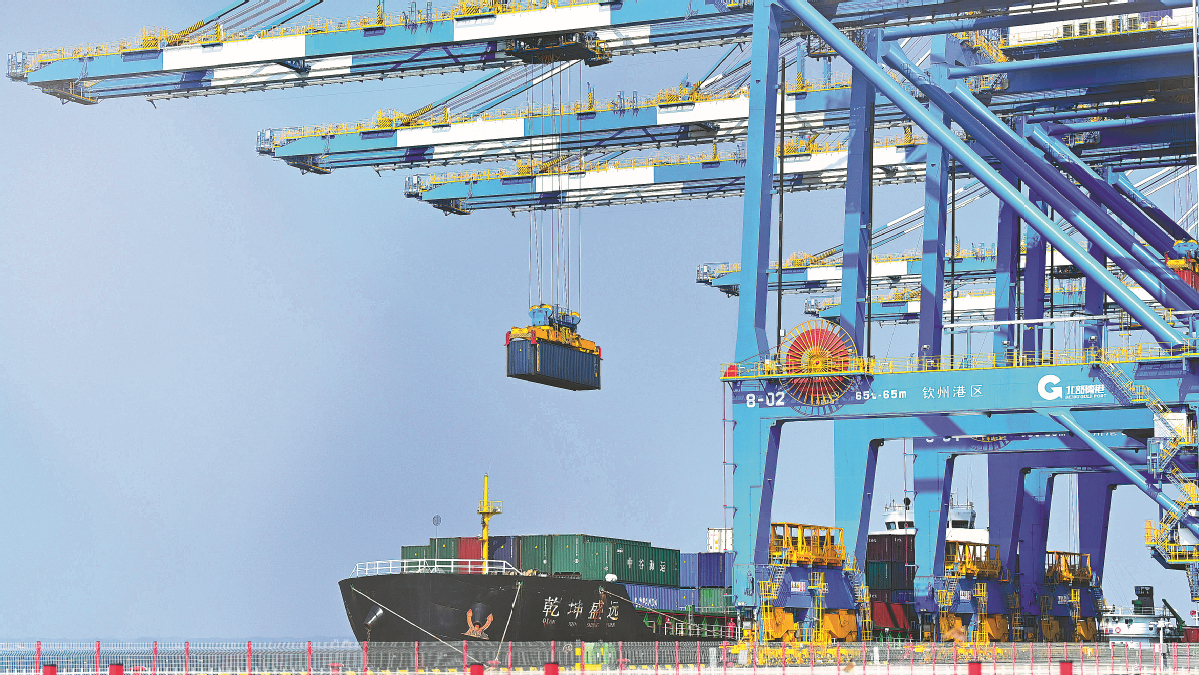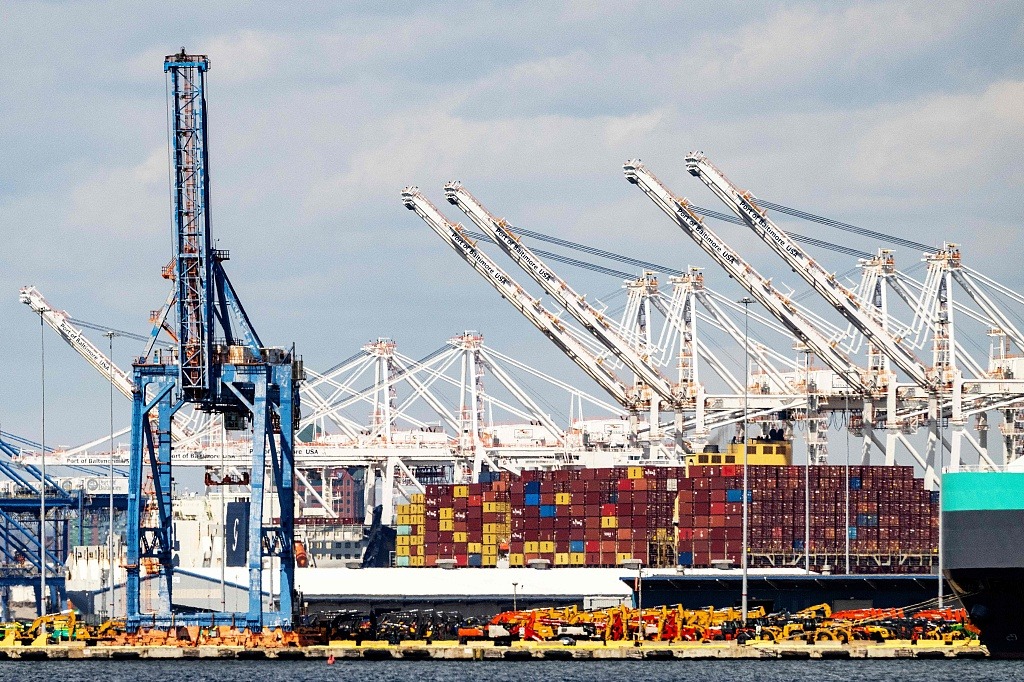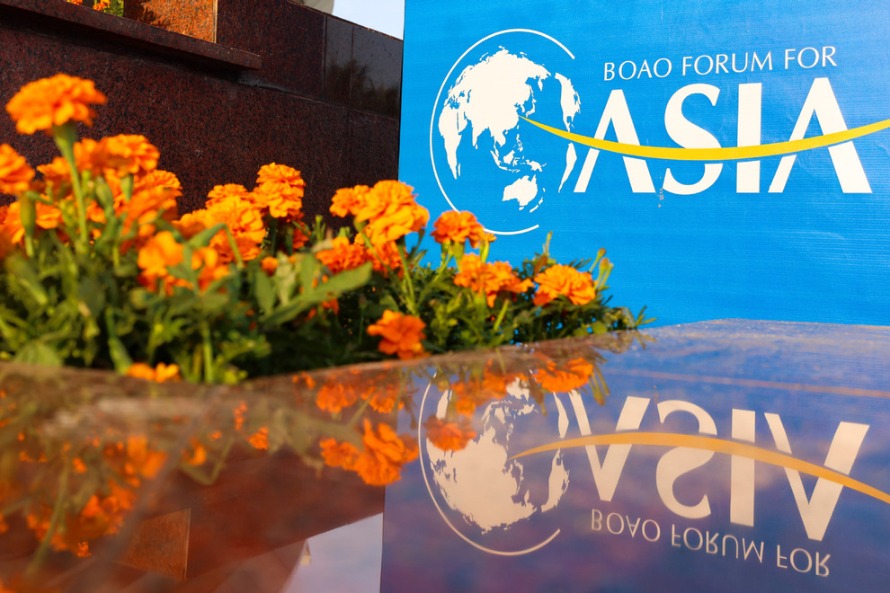ASEAN and China reap the benefits of exchanges, cooperation
By Shi Zhongjun | China Daily Global | Updated: 2024-01-29 09:16

Cooperation between the Association of Southeast Asian Nations and China, which together account for 26 percent of the global population and more than one-third of global economic growth, has tremendous potential and broad prospects. It is also of great significance for advancing common prosperity and modernization in Asia, and safeguarding regional peace and stability.
In September, leaders of ASEAN member nations and China announced in Jakarta that 2024 will be the ASEAN-China Year of People-to-People Exchanges, in a spirit of building stronger connectivity, facilitating cross-border travel, promoting mutual learning among civilizations in the region, and enhancing the ASEAN-China comprehensive strategic partnership in the long run.
China and the member states of ASEAN have forged time-honored friendships. Trade and cultural exchanges between ASEAN and China flourished along the routes of the ancient Maritime Silk Road, which had a far-reaching influence on the economic growth and social progress of both sides.
Since China and ASEAN established dialogue relations in 1991, both sides have been engaged in friendly exchanges and win-win cooperation based on the principles of equality, mutual benefit and shared responsibility. As one of the three pillars buttressing ASEAN-China relations, people-to-people exchanges have been bearing rich fruit in such fields as education, culture, tourism, youth, sports and media, laying a solid foundation for the rapid development of ASEAN-China relations.
In 2019, before the onset of the COVID-19 pandemic, more than 65 million people traveled between China and the ASEAN countries, with nearly 4,500 connecting flights every week. Till the end of 2019, the aggregate number of students exchanged between the two sides exceeded 200,000.
Out of the top 10 popular destinations for Chinese tourists in recent years, seven are ASEAN states: Thailand, Vietnam, Singapore, Indonesia, Malaysia, Cambodia and the Philippines. After braving the pandemic with concerted efforts, ASEAN and China are now joining hands to promote the recovery of economic ties and people-to-people exchanges.
For three years in a row, China and ASEAN have remained each other's largest trading partner and each other's major tourist destination and source market. China has launched reciprocal visa-related policies with some ASEAN countries. Not long ago, Thailand and China announced permanent visa exemptions for each other's citizens starting on March 1. Singapore and Malaysia also announced that they were granting 30-day visa exemptions for Chinese citizens.
These favorable arrangements have already witnessed increasing numbers of tourists traveling between ASEAN countries and China.
Looking ahead, ASEAN-China relations are standing at a new starting point, and the growth of their comprehensive strategic partnership is enjoying sound momentum. The ASEAN-China Year of People-to-People Exchanges will definitely garner much stronger public support for this dynamic and productive partnership.
First, mutual understanding and friendship between the people of the two sides will be enhanced. Amity between peoples holds the key to relations among nations. People-to-people connectivity stands out as the most essential, solid and lasting connectivity. Through colorful and meaningful events in such areas as tourism, education, culture and sports, people from ASEAN nations and China can gain a better understanding of and learn from each other, thus rendering stronger support for the building of an ASEAN-China community with a shared future.
Second, mutual learning among civilizations will be strengthened. Both ASEAN and China boast unique and diverse cultures that are shining gems of Asian civilization. As the future of all countries is closely connected, the mutual learning among different civilizations plays an irreplaceable role in advancing humanity's modernization. Robust cultural and people-to-people exchanges between the ASEAN members and China will make the garden of Asian civilizations bloom more colorfully and vibrantly.
Third, the foundation for practical cooperation between ASEAN and China will be cemented. Since the establishment of dialogue relations between ASEAN and China, the practical cooperation in various areas between the two sides has registered tremendous progress. Against the backdrop of complex changes in the international landscape, ASEAN and China should further strengthen cultural and people-to-people exchanges, enhance political mutual trust, and expand practical cooperation to inject more positive energy into regional peace, stability and development.
Throughout 2024, ASEAN and Chinese government departments, friendship organizations, business communities and other entities will carry out exchanges and cooperation in such areas as youth, education, culture, tourism, media, and science and technology. For example, as the only intergovernmental organization co-founded by the 10 member states of ASEAN and China, the ASEAN-China Centre has established itself as an efficient platform and bridge between ASEAN and China since its establishment.
The center's efforts will manage to greatly enhance public awareness of ASEAN-China relations and promote mutual understanding among people of both sides. The events in 2024 will bring ASEAN-China people-to-people exchanges to new heights and enhance mutual understanding, thus contributing to the sound and sustained development of the ASEAN-China comprehensive strategic partnership.
In the face of a more unstable and uncertain world, ASEAN and China have been, are and will always be advocating the spirit of independence, championing peaceful development, and promoting global stability and prosperity. Let us join hands to champion our Asian values of solidarity and collaboration, inject positive energy into an evolving region, move forward with firm and steady steps, and strive together for an even closer ASEAN-China community with a shared future, bringing more tangible benefits to our peoples.
The author is secretary-general of the ASEAN-China Centre.
























